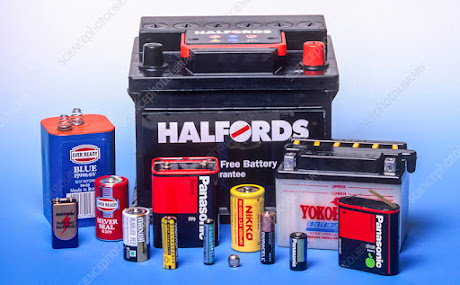Types of Batteries use in UPS
Uninterruptible Power Supplies (UPS) use various types of batteries to ensure continuous power supply during outages or fluctuations. The primary types of batteries used in UPS systems are:
1. Lead-Acid Batteries
2. Nickel-Cadmium (NiCd) Batteries
3. Lithium-Ion (Li-Ion) Batteries
4. Nickel-Metal Hydride (NiMH) Batteries
Let's delve into the details of each type:
1. Lead-Acid Batteries
Types:
Valve-Regulated Lead-Acid (VRLA) Batteries: Also known as Sealed Lead-Acid (SLA) batteries, they are maintenance-free and are widely used in UPS systems.Flooded Lead-Acid Batteries: These require regular maintenance and water refilling. They are typically used in large-scale UPS systems due to their long lifespan and cost-effectiveness.
Characteristics:
Advantages: Low cost, high reliability, and mature technology.
Disadvantage: Heavy weight, limited cycle life, and environmental concerns due to lead content.
Applications: Commonly used in both small and large UPS systems across various industries.
Characteristics:
Advantages: Long cycle life, reliable performance in extreme temperatures, and robustness.
Disadvantages: Higher cost compared to lead-acid batteries, cadmium is toxic and poses environmental risks.
Applications: Used in environments with extreme temperatures and for critical applications where reliability is paramount.
3. Lithium-Ion (Li-Ion) Batteries
Characteristics:Advantages: High energy density, lightweight, longer lifespan, fast charging, and low maintenance.
Disadvantages: Higher initial cost, potential safety concerns if not properly managed.
Applications: Increasingly popular in modern UPS systems, especially for data centers and critical infrastructure due to their efficiency and long lifespan.
Characteristics:
Advantages: Higher energy density compared to NiCd batteries, environmentally friendlier (less toxic).
Disadvantages: Higher self-discharge rate, more expensive than NiCd.
Applications: Less common in UPS systems, typically used where higher energy density and environmental considerations are important.
Most Used Battery in UPS: VRLA Batteries
Valve-Regulated Lead-Acid (VRLA) Batteries** are the most commonly used type in UPS systems due to their balance of cost, reliability, and ease of maintenance. They are favored for the following reasons:
Cost-Effectiveness: VRLA batteries are more affordable compared to other types like lithium-ion.
Maintenance: They are sealed and require no regular maintenance, making them convenient for a wide range of applications.
Maturity of Technology: Lead-acid battery technology is well-established, ensuring reliability and availability of support and parts.
While VRLA batteries dominate the UPS market due to their cost-effectiveness and reliability, the use of Lithium-Ion batteries is growing, driven by their superior performance and decreasing costs. The choice of battery largely depends on the specific needs of the UPS system, including considerations for cost, maintenance, performance, and environmental impact.


.jpeg)





Very helpful information
ReplyDelete